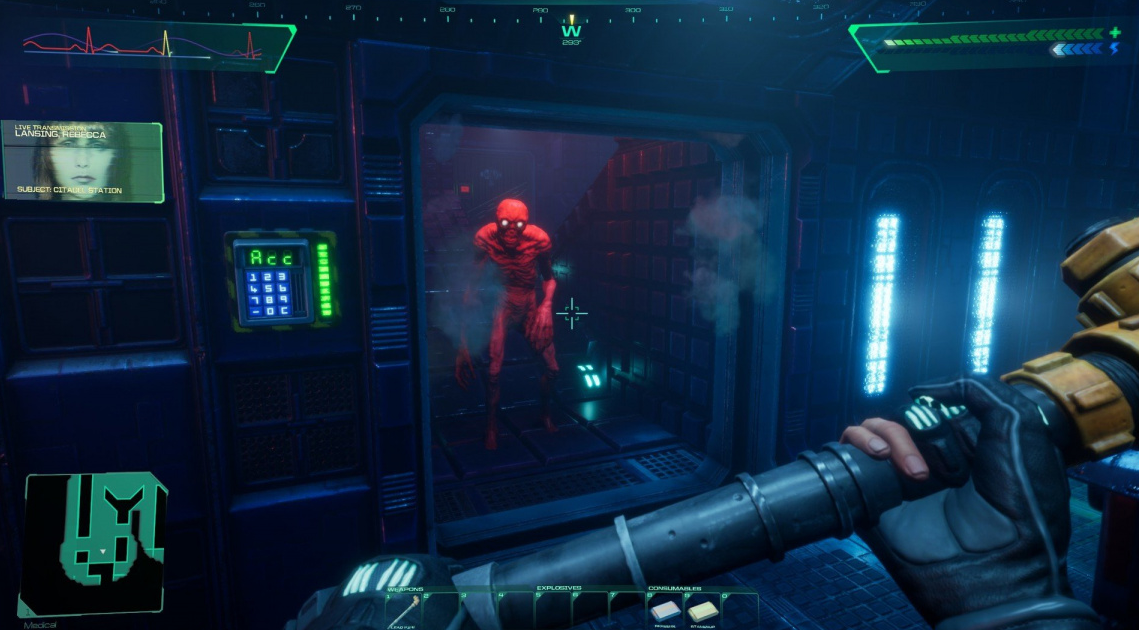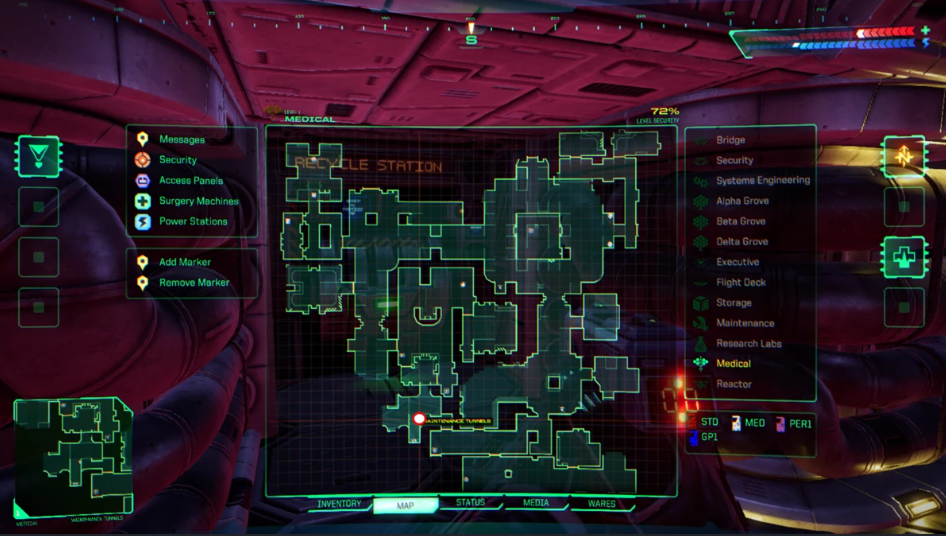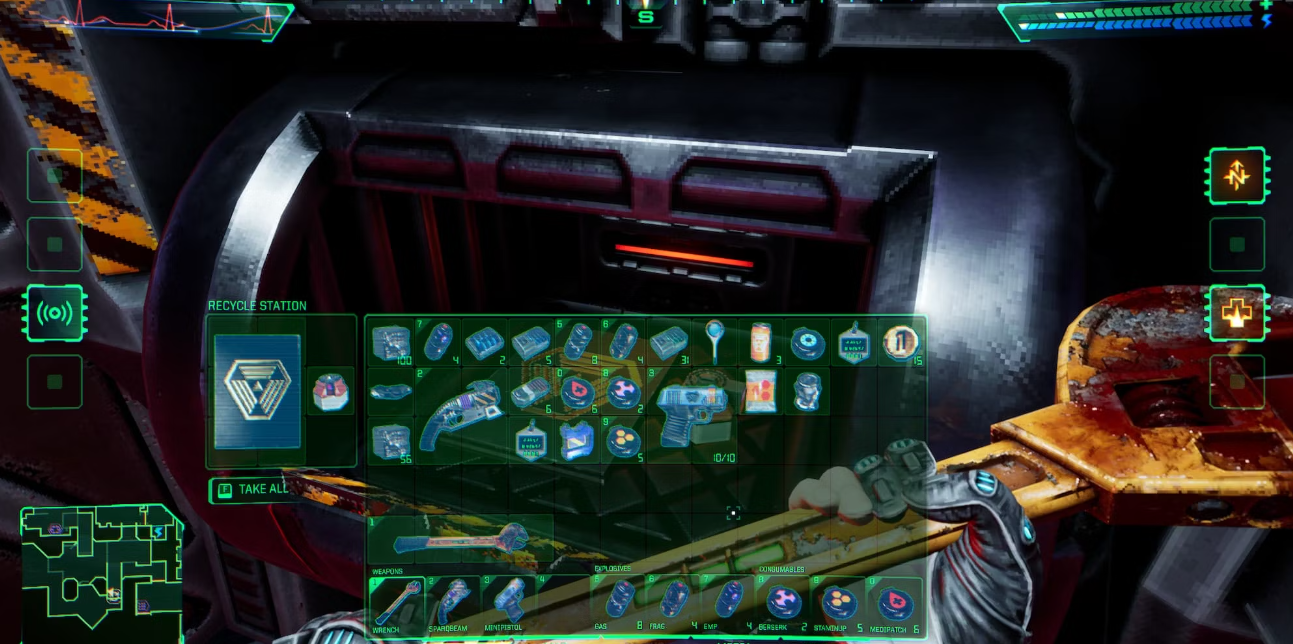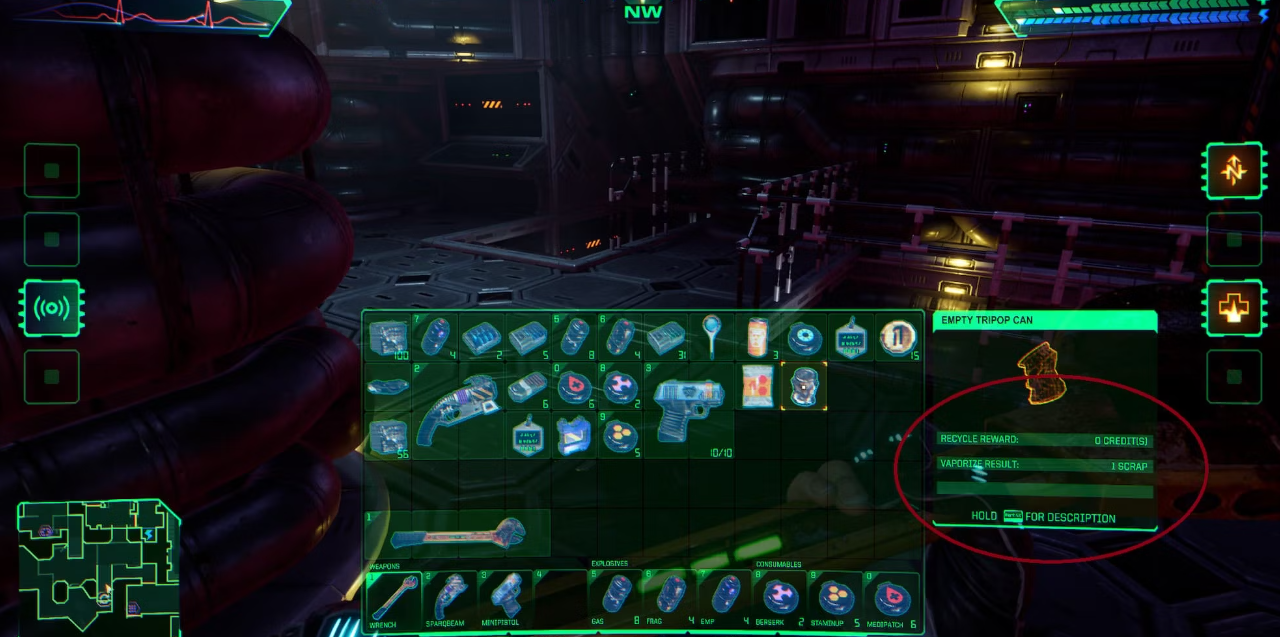Gaming
System Shock Remake – How to Recycle

Recycling is important, even in the futuristic world of System Shock. Players can benefit greatly by recycling the random trash they create or discover throughout Citadel Station. In the System Shock remake, you can recycle anything because your money will keep you alive in the game, not because it’s good for the environment. What might initially seem like a stethoscope covered in earwax can always be turned into money. By reading this post, you will discover how to recycle in System Shock Remake:
Read Also: System Shock – How to Lower Security Level
Recycle Machine Location in System Shock Remake
Most things on System Shock’s shelves can be gathered in your inventory and recycled for credits at recycling stations. The recycling machine may be found on the first medical floor, directly above the maintenance tunnel entrance, as indicated by the map below. To reach this region, you must go via the Gamma Quadrant and down from the Central Hub.

Proceed straight through the centre room, taking a right at the vending machines to enter the hallway. Proceed to the bottom right door from the hallway, the door across from the one with the yellow grenade sign. The recycling machine should be located in an alcove on the left in this space. Although they take up more inventory space, laptops and other electronic devices are typically the best ones to recycle for credit.
To operate the device, click the drum and then drag and drop things from your inventory into the leftmost window. After that, close the menu and press the machine’s green “Press to Start” button. You can retrieve the credit by inserting it into a slot to the machine’s right.
How to Recycle Items
Technically, there are two methods to recycle objects; the primary method is to use one of the special Recycle Stations located throughout the cyberpunk space station. There is at least one of these on practically every level; they seem like large, hefty machines with large labels on top of them. To use them, access the inventory screen by interacting with the receptacle in the machine’s centre.

Then, place any recyclable object into the item box on the left. To begin recycling, exit the menu and right-click the machine’s green button. Every inserted item will be discarded and converted into Tri-Credit coins, dropping out of the coin slot to the station’s right. Remember to pick these up each time a recycled item is finished. Using the inventory directly is the second method of recycling products. Pick “Vaporise” from the contextual menu by clicking on a piece of trash.
This is a wonderful approach to managing space because it will turn the item into a cube of junk that takes up only one inventory slot. After that, scrap can be returned to recycle stations to receive Tri-Credits. To get one coin, players will need to collect 10 Scrap. Examining each item in the inventory screen will reveal its unique Scrap and Recycle values, which are in keeping with the spirit of a real Immersive Sim.

When choosing whether to recycle or scrap an item, bear in mind the conversion rate that was previously indicated. Credits can be used to purchase goods, including food, ammunition, and medical supplies from various vending machines located around Citadel Station. But since cash isn’t plentiful, players should mentally recall the location of the Recycle Station on their level in case they suddenly find themselves short on Credit. You are welcome to go back to previous levels if necessary.
How to Use A Recycle Station
The first thing you must do is locate a recycling station. I’ve indicated the Medical Level recycle station’s location on the map below for your convenience. After you’re in front of the station, turn it on and drag the objects—junk or scrap cubes—you wish to recycle into the upper-left box.

You can press the button on the station after you exit. Then your brand-new, gleaming credits will disappear through the opening on the right. Regretfully, only materials that fit inside the recycle station’s box can be recycled. In one instance, I discovered that a damaged pulse rifle would not fit, so I recycled the scrap for credit and trashed the rifle.
FAQs
Is it better to vaporize or recycle in System Shock Remake?
The drawback is that you can only receive one credit for every ten scraps. Therefore, you are losing money even while you are freeing up inventory slots. A broken handgun can be recycled for three credits, but vaporised for one and a half credits worth of scrap.
How do you recycle scrap in System Shock Remake?
You can approach and contribute stuff to the main compactor at the Recycle Station once you’ve located it during your exploration of Citadel Station. To access your inventory, click the right mouse button to open the compactor. Items can be placed inside the recycling station here.
What to do with ID tags in System Shock?
Players can uncover the supporter’s identity by pressing LEFT ALT while looking at the ID tag in their inventory. The tag identifies the backer. Although the tags are useless in and of themselves, it’s a delightful way to honour the devoted fans who made the much-anticipated remake of System Shock possible.
What to do with junk System Shock?
You can swap any garbage for credits. Just be careful that the scrap cubes are divisible by ten, as each scrap is worth one credit for every ten. The recycling machine will only grant you one credit if you feed it with nineteen leftovers. However, if you clear up all the trash from each level, you can actually get a respectable number of credits.
What is the safety override code in system shock?
Fortunately, we were able to unlock the Cyberspace Terminal at the Library in Research, so we already know the code. We found out at the time that the code was 250. To unlock the lever on your right, punch it in. When you pull it, the Safety Override will turn on formally.
Where to get logic probe System Shock?
In Research Level 2, Logic Probe is situated on a table in the Gamma Quadrant. It should be noted that robot foes will be defending this object, therefore gamers must exercise extreme caution.














